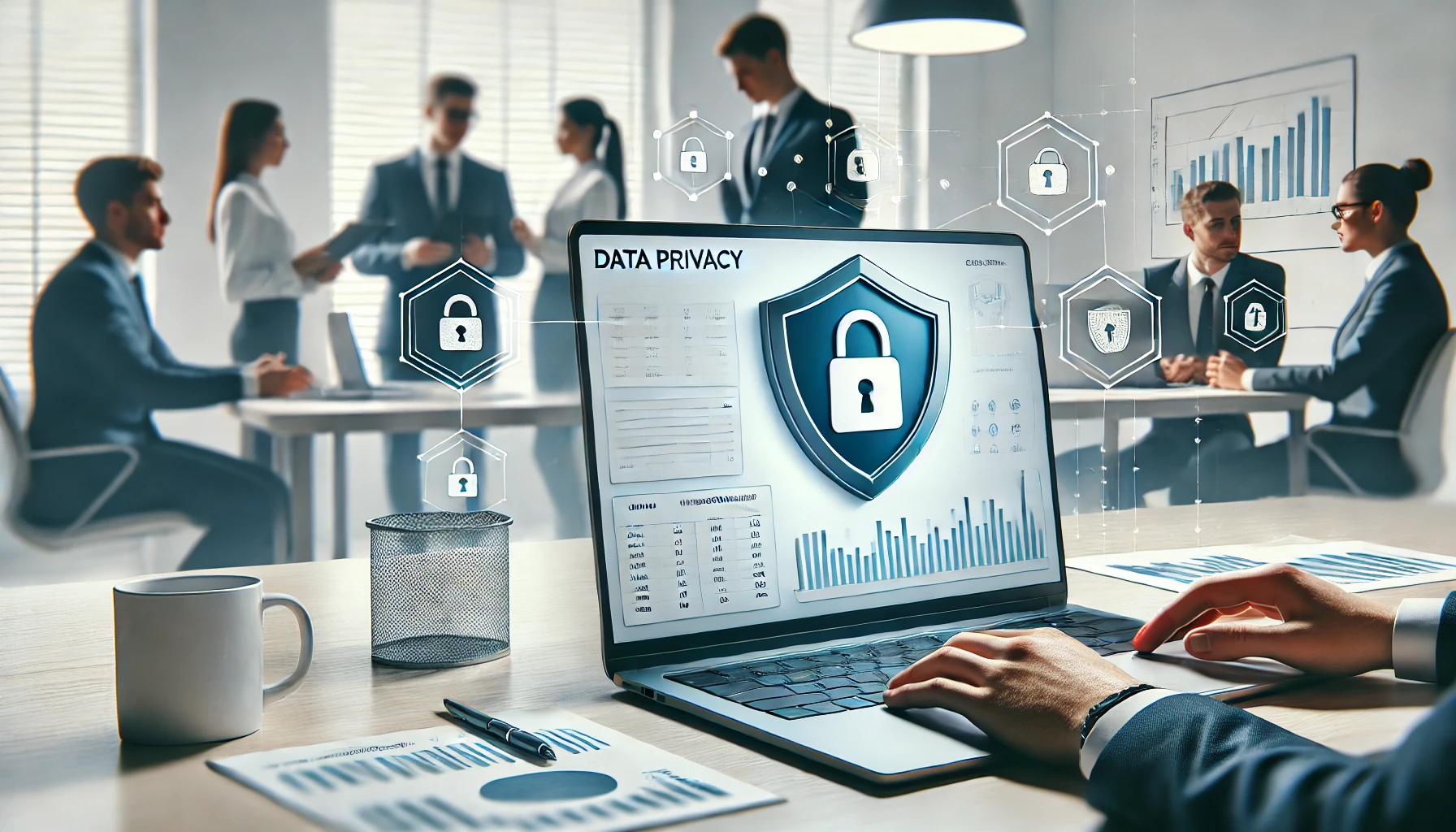Imagine your company’s sensitive data as a valuable treasure chest, requiring utmost protection while collaborating with CRM cleaning consultants. As you navigate the intricate landscape of data privacy, establishing robust security measures becomes paramount. But how can you ensure that your data remains secure amidst the collaborative efforts with external consultants? Stay tuned to discover practical strategies and expert insights on safeguarding your data privacy in the realm of CRM cleaning consultancy.
Understand Data Privacy Laws
To navigate the complexities of data privacy laws effectively, it is crucial to understand the legal framework governing the protection of personal information. Compliance training plays a significant role in ensuring that all employees are aware of their responsibilities in safeguarding sensitive data. By familiarizing yourself with data classification methods, you can better identify the types of information your organization handles and the appropriate level of protection each category requires.
Data classification involves categorizing data based on its sensitivity and importance. This process allows organizations to prioritize their security efforts and allocate resources effectively. Understanding the different classifications, such as public, internal, confidential, and restricted, is essential for implementing appropriate security measures and access controls.
Compliance training should cover not only the basics of data privacy laws but also practical examples and scenarios relevant to your organization’s operations. By investing in comprehensive compliance training programs and promoting a culture of data protection, you can strengthen your organization’s defenses against potential data breaches and regulatory violations.
Discuss With Consultants
Understanding data privacy laws and classifications is foundational to protecting sensitive information within your organization. When discussing data privacy with CRM cleaning consultants, it is crucial to ensure they have undergone proper consultant training on data protection. Start by addressing data handling procedures and emphasizing the importance of confidentiality discussions. Consultants must understand the significance of safeguarding client data and the potential consequences of mishandling it.
During discussions with consultants, clarify the specific data protection measures in place and any additional requirements unique to your organization. Encourage an open dialogue where consultants can ask questions and seek clarification on data privacy protocols. Emphasize the significance of their role in upholding data privacy standards and maintaining the confidentiality of all information they come across during their work.
Check Data Security Measures
When evaluating data security measures with CRM cleaning consultants, ensure they have robust data encryption protocols in place to protect sensitive information. Additionally, inquire about their access control policies to prevent unauthorized access to confidential data. Regular security audits should also be conducted to identify and address any potential vulnerabilities promptly.
Data Encryption Protocols
Implementing robust data encryption protocols is essential when working with CRM cleaning consultants to safeguard sensitive information. To ensure data security and compliance with privacy regulations, consider the following key aspects:
- Encryption Standards: Utilize industry-standard encryption algorithms like AES (Advanced Encryption Standard) to protect data both at rest and in transit.
- Data Storage: Encrypt all stored data on servers and databases to prevent unauthorized access and maintain confidentiality.
- Privacy Regulations: Adhere to relevant privacy laws such as GDPR or CCPA to ensure that data encryption practices align with legal requirements.
- Data Transfer: Implement secure communication protocols like SSL/TLS when transferring data between systems or sharing information with external parties.
Access Control Policies
To ensure the protection of sensitive data while collaborating with CRM cleaning consultants, establishing robust access control policies is imperative. User permissions play a critical role in defining who can access specific information within the CRM system. By assigning appropriate user permissions based on roles and responsibilities, organizations can limit access to confidential data only to those who require it for their job functions. This ensures that sensitive information remains secure and reduces the risk of unauthorized access.
Data segregation is another key aspect of access control policies that helps in safeguarding data privacy. By segregating data based on levels of sensitivity or confidentiality, organizations can implement controls to restrict access to highly sensitive information. This segregation ensures that even if unauthorized access is gained to certain parts of the CRM system, the most critical data remains protected.
Regular Security Audits
Regularly conducting security audits is a fundamental practice in maintaining the integrity and effectiveness of data security measures within any organization. These audits help identify vulnerabilities, assess the efficacy of existing security protocols, and ensure compliance with industry standards and regulations. Here are four key reasons why regular security audits are crucial for safeguarding your data:
- Identification of Weaknesses: Security audits allow you to uncover any weaknesses or gaps in your current data protection measures, enabling you to proactively address them before they are exploited by malicious actors.
- Compliance Monitoring: Through security audits, you can ensure that your organization is adhering to relevant data protection laws and regulations, mitigating the risk of non-compliance penalties.
- Enhanced Security: By conducting regular security assessments, you can continuously improve your data security posture, staying one step ahead of potential cyber threats.
- Risk Mitigation: Security audits help in identifying potential risks and vulnerabilities, allowing you to implement appropriate mitigation strategies to protect your sensitive data effectively.
Implement Best Practices
To ensure comprehensive data security, it is crucial to implement best practices within your organization when working with CRM cleaning consultants. By establishing robust data security measures and ensuring compliance with privacy policies, you can safeguard sensitive information effectively. Emphasizing adherence to these practices will help maintain the integrity and confidentiality of your data throughout the consultancy process.
Data Security Measures
Enhancing data security measures is paramount when working with CRM cleaning consultants to safeguard sensitive information and maintain client trust. To ensure the protection of data, consider the following best practices:
- Data Encryption: Utilize robust encryption methods to secure data both in transit and at rest. Encrypting sensitive information adds an extra layer of protection against unauthorized access.
- Access Control: Implement strict access controls to limit who can view, edit, or delete data within the CRM system. By assigning specific permissions based on roles and responsibilities, you can reduce the risk of data breaches.
- Regular Audits: Conduct frequent security audits to identify vulnerabilities and ensure compliance with data protection regulations. Regular assessments help in detecting and addressing any potential security gaps promptly.
- Employee Training: Provide comprehensive training to employees on data security best practices and the importance of safeguarding sensitive information. Educating staff members helps in creating a security-conscious culture within the organization.
Privacy Policy Compliance
When collaborating with CRM cleaning consultants, ensuring compliance with privacy policies becomes a cornerstone of maintaining data integrity and security. To achieve this, start by conducting a thorough policy review to ensure that all data privacy guidelines are clearly outlined and followed. Regularly reviewing and updating these policies can help adapt to evolving privacy regulations and best practices.
Another crucial aspect of privacy policy compliance is providing compliance training to all employees who handle sensitive data. This training should cover the importance of privacy policies, the procedures to follow when handling data, and the consequences of non-compliance. By educating your team on the significance of privacy regulations and best practices, you create a culture of data protection within your organization.
Monitor Data Access
A crucial aspect of safeguarding data privacy while working with CRM cleaning consultants is closely monitoring data access. To ensure that sensitive information remains secure, it is essential to implement robust measures for access monitoring and user permissions.
Key Steps for Monitoring Data Access:
- Regular Auditing: Conduct routine audits to track who accessed the data, when, and for what purpose. This helps in identifying any unauthorized or suspicious activities promptly.
- Role-Based Access Control: Implement role-based access control to restrict data access based on job responsibilities. This ensures that employees only have access to the information necessary for their roles.
- Real-Time Alerts: Set up real-time alerts for any unusual data access patterns. This allows for immediate action in case of unauthorized access attempts or breaches.
- Access Logging: Maintain detailed logs of data access activities. These logs can serve as a valuable resource for investigating security incidents and ensuring compliance with data privacy regulations.
Report Any Breach
To maintain the integrity of your data security measures, it is imperative to swiftly address any breaches that may occur. Incident response plays a crucial role in mitigating the impact of a breach. Upon discovering a breach, it is essential to have a well-defined incident response plan in place. This plan should outline the steps to be taken, responsibilities assigned, and communication protocols to follow.
Once a breach is identified, swift action is necessary. The incident response team should immediately contain the breach, assess the extent of the damage, and work towards restoring the security of the affected data. Timely breach notification is also vital. Informing relevant stakeholders, such as customers and regulatory authorities, about the breach is not only a legal requirement in many jurisdictions but also helps in maintaining transparency and trust.
Frequently Asked Questions
How Often Should Data Privacy Laws Be Reviewed?
You should regularly review data privacy laws to ensure compliance. Conduct compliance audits periodically and update data retention policies accordingly. Stay informed about legal changes to protect sensitive information effectively and maintain trust with clients and partners.
Are Consultants Required to Sign Non-Disclosure Agreements?
Consultants must sign non-disclosure agreements to protect sensitive information. Legal implications mandate confidentiality measures. Consultant training should emphasize adherence to data sharing policies. Ensure all parties comprehend and comply with the confidentiality obligations outlined in the agreements.
What Encryption Methods Are Used for Data Security?
Imagine data security as a digital fortress guarded by encryption standards. To ensure robust protection, experts utilize advanced encryption methods compliant with privacy regulations and fortified by technology safeguards to shield sensitive information from unauthorized access.
Can Employees Access Customer Data Without Permission?
You can prevent unauthorized access by implementing strict access control measures. Ensure employees receive comprehensive training on data privacy policies and the importance of obtaining permission before accessing customer data. This proactive approach safeguards sensitive information.
How Should Breaches Be Reported to Regulatory Authorities?
When breaches occur, promptly report to regulatory authorities according to compliance requirements. Follow clear breach notification procedures to mitigate risks. Maintaining transparency is crucial in meeting regulatory standards and preserving trust with customers and stakeholders.




